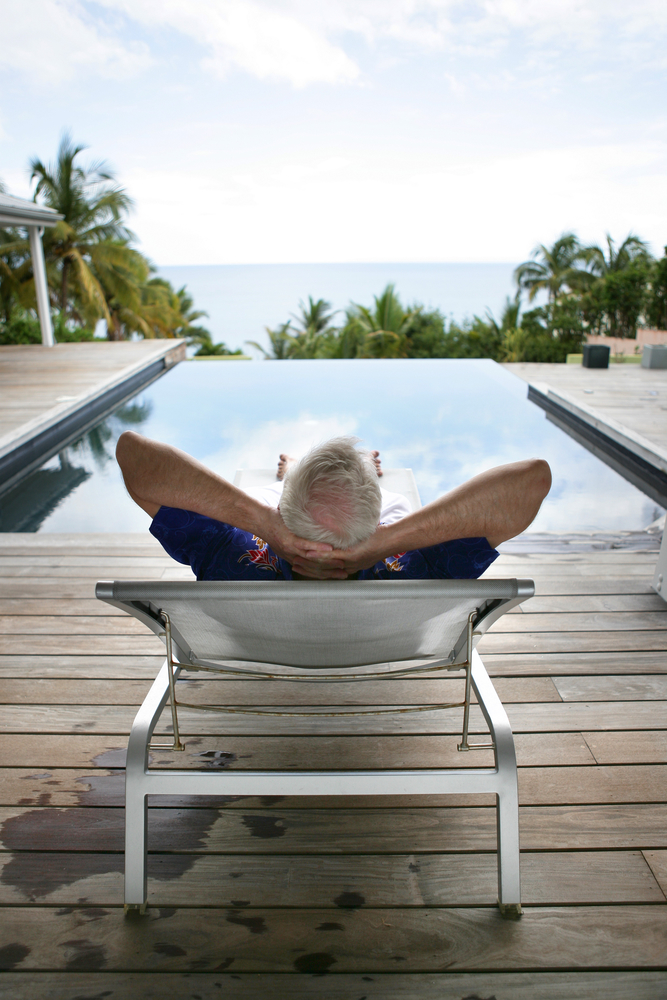Do you need the replace your swimming pool deck or have your swimming pool contractor do an acid wash of the concrete deck? Don’t despair when you see puzzling stains. Was that stain there yesterday? Is the stain one of those that simply crept up on you and now that it’s there it seems larger than life?
Are you planning a party and now all you can see is the stain? You certainly can’t toss a throw rug over a stain on the pool deck and move furniture over it and hope no one sees it, right? You can ask your pool service contractor to determine the source of the stain and give you information on how to get rid of it or get rid of it for you.
A stain on the deck is like the ring around the bathtub; you don’t really notice it until it’s so visible that you feel like it could be seen from space!
Don’t Give Up On Your Pool Deck: Clean The Stains
 Before you can get rid of a stain you need to know what its cause is. Unless you’re great at diagnosing staining and pool water chemistry issues you may want to call on the services of a swimming pool service contractor You don’t need to work with a pool service contractor all the time in order to have one come and do a one-time or site visit. Just give your local pool contractor a call or ask a friend or family member who they use.
Before you can get rid of a stain you need to know what its cause is. Unless you’re great at diagnosing staining and pool water chemistry issues you may want to call on the services of a swimming pool service contractor You don’t need to work with a pool service contractor all the time in order to have one come and do a one-time or site visit. Just give your local pool contractor a call or ask a friend or family member who they use.
You could even invest in a “stain identifier” kit. You can buy the kit online or go to the local swimming pool store and ask if they have one for sale. With these kits you’re given ways to self diagnose the cause of the staining. Unless you know the cause, you can’t stop it from happening again. Choosing the correct stain treatment will be key to removing it and keeping it gone.
What could possibly cause staining? You may think that because the pool is outdoors and gets rained on or even gets water splashed on it, that you won’t have to worry about stains. Wrong! A swimming pool is subject to:
- Organic debris
- Chemical imbalances
- Rust stains (from nails in a wooden deck, for example
Just as organic debris like leaves, twigs or grass clippings can stain the bottom of the pool if it’s not skimmed off before it settles, so too can this debris stain the deck.
Main causes of staining also include:
- Metal compounds that meet the chemical treated water
- Excess organic compounds
- Improperly balanced chemicals including alkalinity, pH and improper amounts of sanitizer
How to get rid of organic stains
 Pinpoint the cause of the stain. The first step in recognizing whether it’s organic is you will see a noticeable outline (think of berries that fall from a tree into your driveway when you think of the outline). You can eliminate organic stains by rubbing a chlorine tablet over the stained area. Wear protective gloves on your hand and be careful of using too much chlorine and not rinsing it off well enough as that will lead to a bleached stain mark.
Pinpoint the cause of the stain. The first step in recognizing whether it’s organic is you will see a noticeable outline (think of berries that fall from a tree into your driveway when you think of the outline). You can eliminate organic stains by rubbing a chlorine tablet over the stained area. Wear protective gloves on your hand and be careful of using too much chlorine and not rinsing it off well enough as that will lead to a bleached stain mark.
How to get rid of copper stains
Copper and other metal stains might be able to be cleaned up with a Vitamin C tablet or a commercial pool cleaning agent. You may want to talk with your pool contractor if you’re unclear as to the source of the stain and the best way to eradicate it.
Pool owners with white pools who are seeing rust type stains or even green stains are likely dealing with stains from more than one metal source. This may be the time to call on the services of a pool contractor who can perform an acid wash, clear away all staining and let you start from scratch with a pool that looks like new.
Metals naturally occur in water, but the chemicals used to balance the water chemistry typically keep their staining agents at bay.
How to get rid of calcium stains
You’d think a calcium stain would be white, right? Like milk! Calcium stains appear as tiny brown spots on the pool. The reason calcium staining occurs is that the calcium levels in the swimming pool water is too high. This leads to calcium leaching from the swimming pool and causing staining. A calcium stain can be removed by sanding them down or acid washing the pool.
A calcium stain is most often best left to the experienced hands of a swimming pool service contractor.
How to get rid of pool plaster mottling
When the pool plaster becomes mottled you’re looking at plaster that looks dark and has stain patterns. This can occur during the time when the plaster and concrete are being mixed during the pool construction process. Your pool contractor, if this is a new build, will run a zero alkalinity test and perform a zero alkalinity treatment to reduce mottling and make the plaster fresh, white and smooth.
How to test a stain
The stain identification kit is your best first step in knowing what type of stain you’re dealing with. You can even perform an easy at-home test to check for an iron stain. The way to do this is to grab a Vitamin C tablet, hold the tablet against the suspected iron stain and wait. If the stain disappears or even lightens up — chances are you have a metal stain on your hands.
To run a quick stain ID on what you believe to be an organic stain, grab a trichlor tablet against the stain. If the stained area lightens up — you’re most likely looking at an organic stain.
These two tests we’ve just mentioned, are bare bones and should only be performed if you’re relatively certain of the cause; you don’t want to ignore staining as it will only get worse.
Will removing the stain remove the issue?
Just because you have treated a stain and are now looking at an unstained pool don’t celebrate too quickly. It’s great that you removed the stain BUT you need to treat the actual cause of it. If you don’t address what caused the stain originally, you will only be faced with future staining.
Pool owners need to be diligent in cleaning stained areas. Leaving a stain will eventually cause more damage to the pool and its structure and could eventually leave “ghosting” of the stained area.
The stain needs to be:
- Identified
- Cleaned away
- Its cause needs to be understood and addressed to prevent future staining
Don’t let stains get you down. Call your pool contractor, or a pool contractor if you don’t have one of your own and ask him or her for help addressing the stain, cleaning it up and helping prevent a future one.

